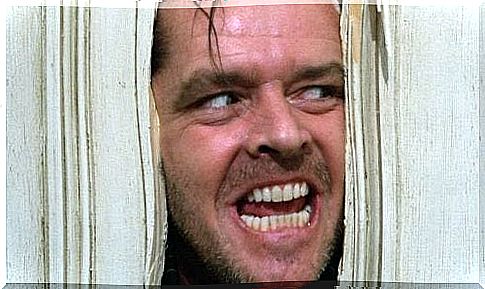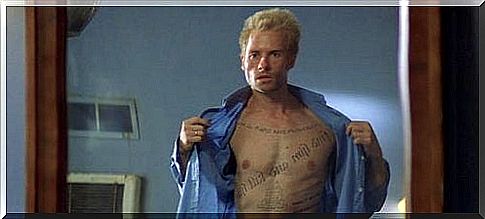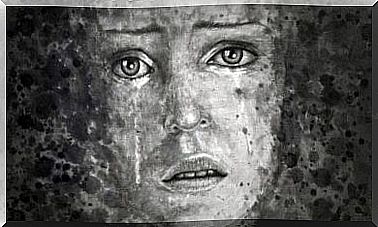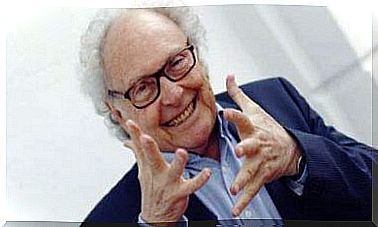Psychopathology And Cinema: Reality Or Fiction?

Psychopathology is often present in films. A countless number of films have told us stories about psychologists, psychiatrists and especially about people who suffer from mental disorders. Even when the storyline isn’t directly related to psychopathology, the psychology is still present in every character.
However, the truth is that the descriptions of the psychological disorders, the symptoms or the relationships between the patients and the professionals on the screen are not always correctly displayed.
Often these elements are expanded or exaggerated to ensure that the film has more effect. This tendency causes screenwriters, directors and actors to deviate from the facts and the sciences. This, in turn, causes them to move in a direction that actually displays a distorted image.
Contradictions as a function of the surprise effect
We all understand that sometimes it’s necessary to exaggerate things a bit in a movie. After all, the intention is that what an audience sees on screen has real effect and is powerful.
Usually we go to the cinema in search of relaxation and not knowledge. If we want to be informed movie viewers, we have to pay attention to three important aspects.
Violence and aggression
Far too often, violence and aggression are linked to mental disorders. Many movie characters with a psychological problem come across as aggressive or sadistic. They have a dark side that really has nothing to do with their disorder.
This negative portrayal of someone with a mental disorder furthers the social stigma about how “dangerous” people with a mental disorder can be. Statistically, however, this is far from the truth.
Various disorders
In books on psychopathology we find many different conditions that have similar symptoms and characteristics. In these cases, the diagnostic boundaries overlap. For example, movies often confuse borderline personality with bipolar disorder.
In addition, we see how the depressive or manic periods are not portrayed correctly in films. Some movies even show love as a way to heal a mental disorder.
The image of the therapist
Movies also give a distorted image of a therapist. The psychiatrist Pilar de Miguel argues that professional counselors in movies receive either very good treatment or very bad treatment. We often see professionals in films who are unable to set professional boundaries with regard to their patients.

So now we know what to look out for. However, there are also films that accurately portray psychopathology. We understand the need to emphasize dramatic elements and portray powerful stories and feelings.
Perhaps the viewer should remember the following. A movie will never be able to accurately portray something as complicated as a mental disorder.
Psychopathology in movies
As Good as it Gets
As Good as it Gets is a movie we all associate with obsessive-compulsive disorder. We do this because the main character has symptoms that we would generally classify as symptoms of obsessive-compulsive disorder.
However, the touchy character, Melvin, might lead us to believe that people who suffer from this disorder share the same personality traits.
So our job is to separate his annoying symptoms from the symptoms of obsessive-compulsive disorder. These symptoms include extreme rituals involving neatness, symmetry, and repetition. We see them all in the movie.
After the film’s premiere, much of the audience made a connection between obsessive-compulsive disorder and annoying people in a bad mood.
These erroneous beliefs also include the idea that with a little love and a good friendship, the symptoms can diminish or even disappear. Movies have made us believe that these ideas are true. Nothing could be further from the truth.
The Aviator
The Aviator is a film directed by Martin Scorsese. It tells part of the life of the millionaire, director and entrepreneur Howard Hughes, a character played by Leonardo DiCaprio.
From the point of view of psychopathology, this film shows us in a very successful way the development and evolution of an obsessive-compulsive disorder.
Everything begins with a childhood marked by a mother’s fear that her child will get sick. He went through an eccentric childhood full of mania. His adult life became riddled with obsessions and compulsive behaviors.
In the film we see how Howard Hughes was terrified of germs. He took his soap everywhere. He compulsively washed his hands until they bleed to avoid contamination.
At that time, there was still a definition of the disorder as we have it today. So a doctor never treated it. All of his symptoms and the suffering they caused (which is portrayed to perfection in the film) show that he suffered a great deal.

memento
Before we discuss this movie by Christopher Nolan and how successful it was, let’s first explain what anterograde amnesia is. The retrograde amnesia is better known. In this disorder, people forget things from the past. However, the anterograde amnesia is different.
That’s because this condition makes it impossible for us to learn and remember new things. The person with anterograde amnesia forgets everything at the same time it happens. The reason is that they are unable to store the information in their long-term memory.
So nothing remains present because they live in a spatio-temporal (in space and time) disorientation. After all, every moment is always the same moment.
Without revealing much of the film and storyline, we can say that Memento fairly accurately portrays the anxiety of a person who suffers from this memory disorder.
Throughout the film, we are introduced to the main character’s system. He uses notes, photos and tattoos. With this he tries to decipher what is happening in his life. So his strategy is not to remember things but rather to confirm them.
The director’s goal is to make the viewer feel empathy for the main character and for his state of perpetual bewilderment. At first, the director seems to succeed in this.
Memento is not a perfect reflection of anterograde amnesia. Still , the film is able to make us feel empathy for the main character’s ongoing uncertainty and confusion.

Finally
More than just entertainment, cinema is also an open door to knowledge, reflection and empathy. This has to do with the stories and the characters. We put ourselves in the situation of others, even if it is through fiction.
Thanks to films and books, this is within our reach. However, if we want to know more and delve deeper into the world of psychopathology, then we must inform ourselves through scientific books and experts.








